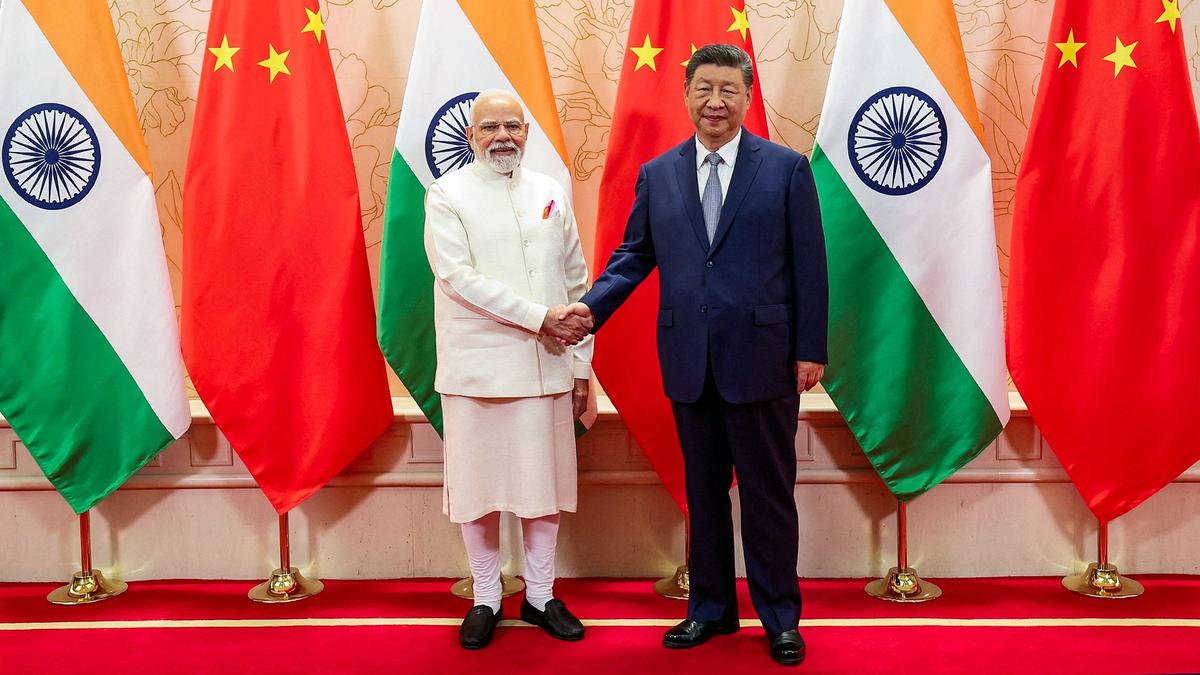Last week, I was privileged to welcome Prime Minister Narendra Modi in Tianjin, China, for the Shanghai Cooperation Organisation (SCO) Summit, and attend the meeting between China’s President Xi Jinping and Mr. Modi. This is a summit of solidarity and friendship. After 24 years of development, the SCO has grown into the world’s largest regional organisation. The SCO Tianjin Summit has been the largest since the organisation’s establishment. Leaders or the representatives of 23 countries, Mr. Modi included, and 10 heads of international organisations gathered to renew friendship, explore cooperation, seek common development, and advance the SCO into a new stage of high-quality development.
A high-yielding summit
There were fruitful outcomes. The Tianjin Declaration announced the establishment of “four security centres”, including the SCO Universal Center for Countering Security Challenges and Threats and the SCO Anti-drug Center, and decided to set up the SCO Development Bank. Member-states of the SCO issued statements which expressed a fair stance in support of the multilateral trading system, and a just voice for defending the achievements of the victory in the Second World War.
This was a summit that focused on development. The leaders adopted the SCO’s development strategy for the next decade. Against this backdrop, Mr. Xi announced that China would establish three major platforms for China-SCO cooperation in energy, green industry, and the digital economy, and set up three major cooperation centres for scientific and technological innovation, higher education and also vocational and technical education. These initiatives are open to all member-states, providing the organisation with new opportunities and empowering the region’s sustainable development.
It was a summit leading global governance. In response to the governance deficit facing today’s world, Mr. Xi put forth the Global Governance Initiative, calling for adhering to sovereign equality, abiding by international rule of law, practising multilateralism, advocating a people-centered approach, and focusing on taking real actions, which became the biggest highlight of this summit.
Since joining the SCO in 2017, India has played an important role in advancing the SCO’s development. China deeply appreciates Mr. Modi’s and India’s full support for China’s SCO presidency. China stands ready to work with India to enhance cooperation under the framework of SCO in various areas such as security, financing, energy, green industry and the digital economy, to better improve the well-being of their people.
The diamond jubilee of ties
This year marks the 75th anniversary of China-India diplomatic ties. In Tianjin, Mr. Xi and Mr. Modi reached new, important and common understandings on growing China-India relations further. Mr. Xi pointed out that it should be the right choice for China and India to be good-neighbourly friends and partners who help each other succeed, and have the dragon and the elephant dance together. Mr. Modi also stated that India and China are partners, not rivals. Their consensus far outweighs their disagreement. India is ready to view and develop the bilateral ties from a long-term perspective.
We should uphold the important and common understandings reached by the two leaders as guidance, and push bilateral relations forward for more practical progress.
First, we should further consolidate strategic mutual trust. We should earnestly draw the lessons from the past 75 years, strengthen correct strategic perception, explore right ways for neighbouring major countries to get along with each other, which are characterised by mutual respect and trust, peaceful coexistence, pursuit of common development, and win-win cooperation, and gradually resume various mechanisms for dialogue and exchange between the two governments.
Second, we should further expand exchanges and cooperation. We should focus on development, which is the biggest common denominator of the two countries, and promote mutual support and success, and better facilitate trade and investment flows. The Chinese side is ready to strengthen cooperation with the Indian side in technology, education, culture, tourism and poverty alleviation, and promote exchanges and communications between political parties, think-tanks, media and the youth, so as to expand the convergence of interests and promote people-to-people bonds.
Third, we should further enhance good-neighbourliness and friendship. We should continue to uphold the Five Principles of Peaceful Coexistence initiated by the older generation of Chinese and Indian leaders, truly respect each other’s core interests and major concerns, and combine our strength to maintain peace and tranquillity in the border areas. We should not allow the boundary question that was left over from the past to define current China-India relations, nor let specific differences affect bilateral cooperation, so as to ensure the sound and stable development of China-India relations.
The road ahead
As the world’s two most populous major developing countries and important members of the Global South, China and India share common interests in pursuing development and revitalisation, maintaining world peace and stability, and promoting global governance. India and China will successively assume the BRICS presidency in the next two years. China stands ready to work with India to support each other’s presidency, deepen and strengthen greater BRICS cooperation, jointly implement the Global Governance Initiative, resolutely oppose bullying and hegemony, defend international fairness and justice, and join hands to build a community with a shared future for humanity.
Xu Feihong is China’s Ambassador to India
Published – September 11, 2025 12:08 am IST
